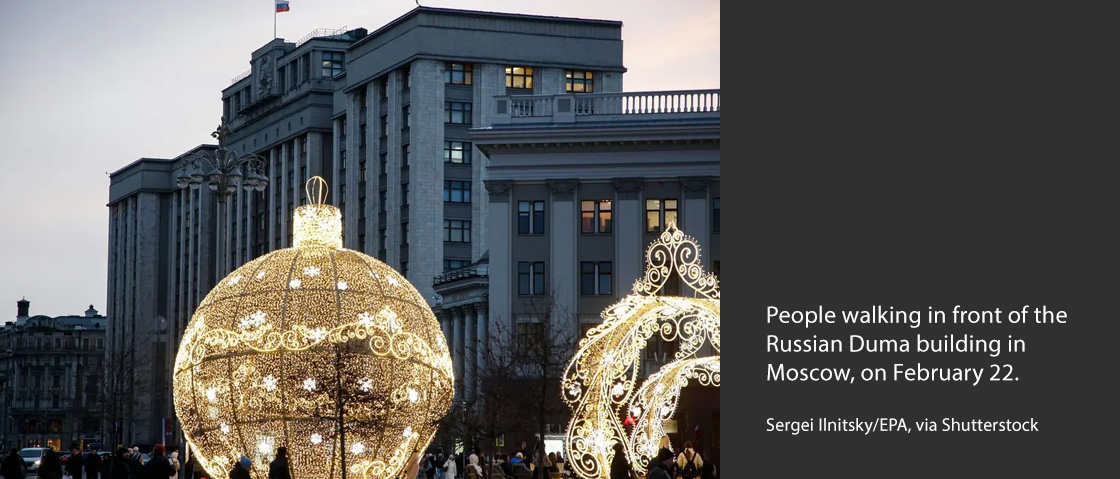This appeared in The New York Times here.
Ada Petriczko joined the Center for International Studies (CIS) as its 2021 Elizabeth Neuffer Fellow. The fellowship is awarded annually by The International Women’s Media Foundation and provides its recipient with educational, training and coverage opportunities related to their reporting on global injustice. Petriczko’s fellowship includes work as a research associate at CIS, as well as reporting positions with both The Boston Globe and The New York Times.
Three members of Russia’s rubber-stamp Parliament have criticized their country’s war in Ukraine, a rare episode of dissent from within the Russian establishment.
All three members belong to Russia’s Communist Party, which is nominally part of the opposition to the governing United Russia party but typically remains loyal to President Vladimir V Putin on key issues.
The latest member to speak out, Vyacheslav Markhaev, wrote on his Facebook account on Sunday that, under the pretext of recognizing two separatist enclaves as republics, “we hid plans to unleash a full-scale war with our closest neighbor.” Markhaev is a senator from Siberia.
He and the other two Communist members had been among the majority of Duma deputies who voted in favor of a recent resolution recognizing the so-called Donetsk People’s Republic and the Luhansk People’s Republic. But in his Facebook statement, Mr Markhaev said that Duma members were not informed of plans for a full-scale invasion, and that he believed a government decree saying troops would be sent in as peacekeepers.
Earlier that week, Oleg Smolin, another Communist member from Siberia, wrote on his Vkontakte social media profile that he was “shocked” when the invasion began. “As a Russian intellectual, I am convinced that military force should be used in politics only as a last resort,” he said, adding: “I could not vote for the recognition of the Donetsk and Lugansk People’s Republics without betraying myself.”
The third Communist deputy, Mikhail Matveyev from the Samara region, said on social media that the war must be immediately stopped.
“I voted for peace, not for war,” he allegedly wrote on Twitter and Telegram, “For Russia to become a shield, so that Donbas is not bombed, and not for Kyiv to be bombed.”
He later deleted the posts, explaining in a Twitter thread that he was not doing it because he had changed his mind, but because his words had been reproduced “across the world, most often anonymously, to incite mutual hatred.”
“I just don’t have the time to delete hate comments created as part of the information war,” he added.
Mr Matveyev explained that he supported peace, but he did not want to be seen as someone who “shoots our soldiers in the back while they are fighting where the politicians have sent them.”
“Ukraine is my Motherland,” he concluded, adding that he is hurt by everything that happens there.
Over the past years, such critical statements have become increasingly rare among members of the Duma, the lower house of the Federal Assembly of Russia. But after Russia invaded Ukraine, dozens of public figures and celebrities, including billionaires, TV anchors and sports stars, some of whom were even considered to be pro-Kremlin, have made their anti-war sentiments clear.




